Padova is a city in Northern Italy, located in the Veneto region, where we also found the famous cities of Venice and Verona. It may not seem like the obvious choice for those visiting the region, but I promise it’s worth visiting Padova 🥰
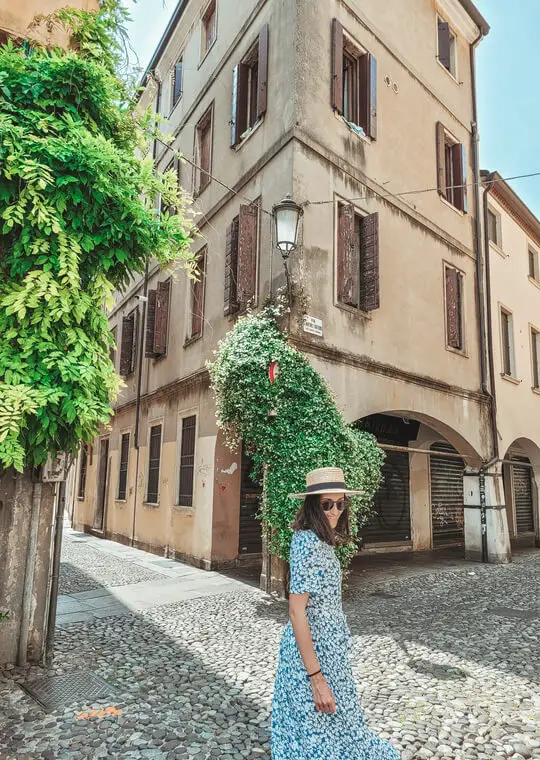
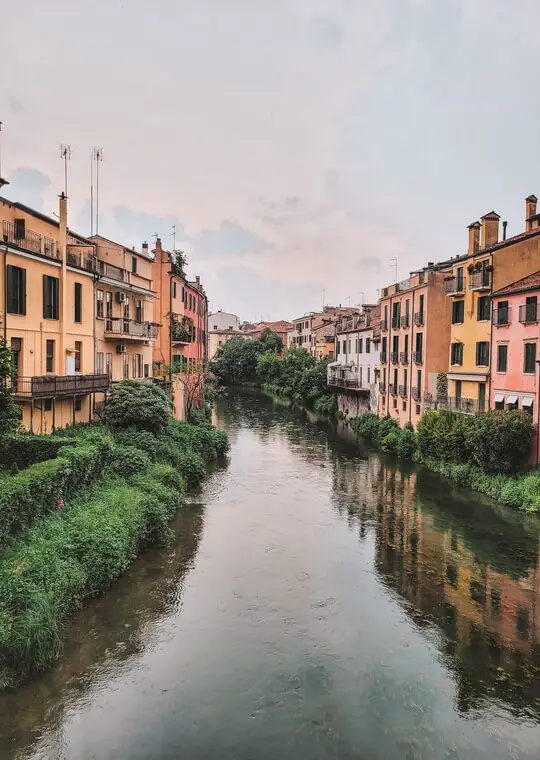
The city may be rather small, but it is very cute and deserves some attention. So keep reading this post so you can better plan your trip to Padova.
When is the best time to visit Padova?
Padova has a very mild climate given its proximity to the sea, so any time of the year is good to visit Padova 😊 However, April to June and September and October are probably the months where you’ll find the city with the most pleasant temperatures (while still managing to escape the tourist crowds at the same time).
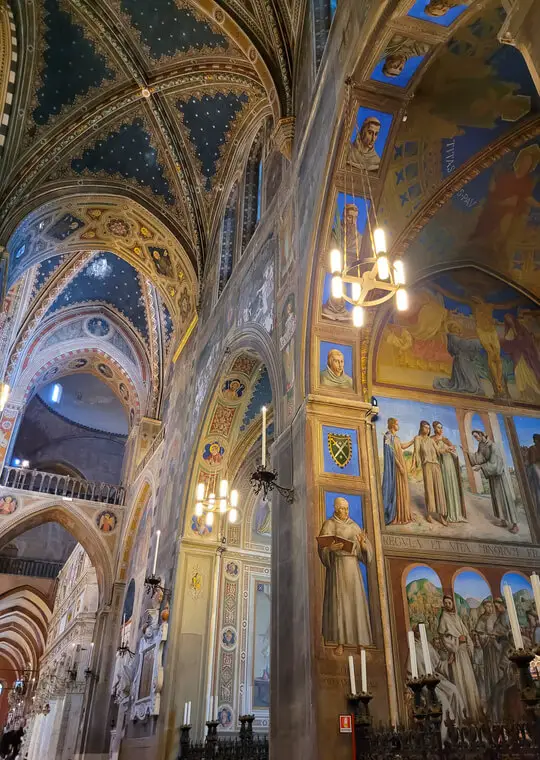
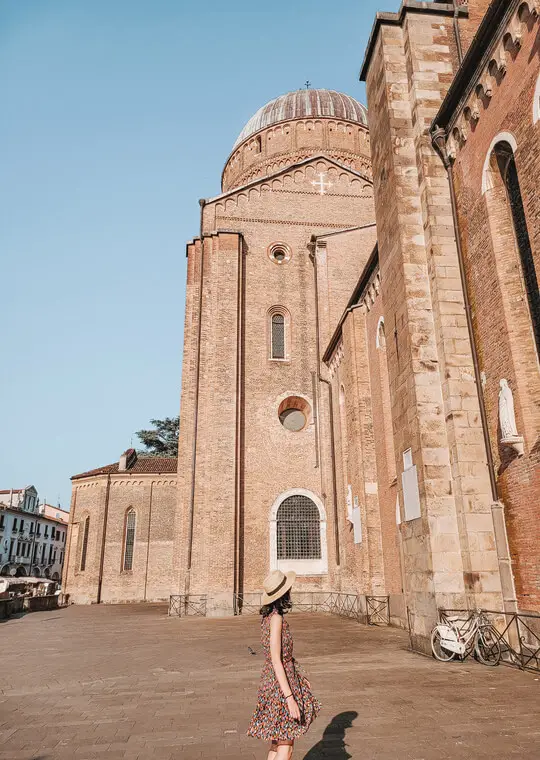
How many days do you need to visit Padova?
Padova is a tiny city, however, it still has some unmissable points of interest. I recommend spending at least one day in the city, but if you have an additional day available, you will certainly be able to better absorb the city’s spirit.
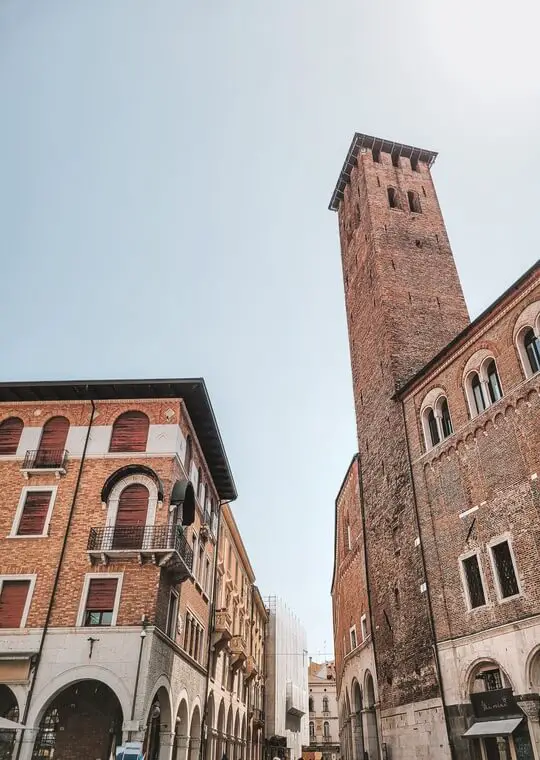
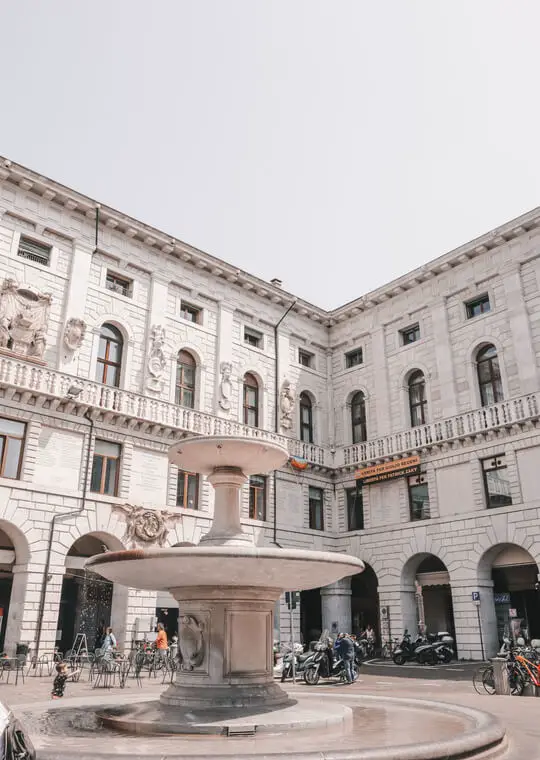
How to get to Padova?
Although Padova does not have an airport, it is very simple to get there from neighbouring airports. I especially recommend you choose one of these airports:
- Verona (~ 1h15): bus (Airlink) from the airport to Verona Porta Nuova railway station and from there take a direct train to Padova
- Treviso (Venice)
- Option 1 (~1h): direct bus from Mobilita Di Marca
- Option 2: get the bus (AirLink) between the airport and Treviso Centrale railway station. From Treviso Centrale, take a train to Venezia Mestre and from there a train to Padova.
- Bologna (~1h30): take a train to Bologna central station and from there change to another train heading to Padova
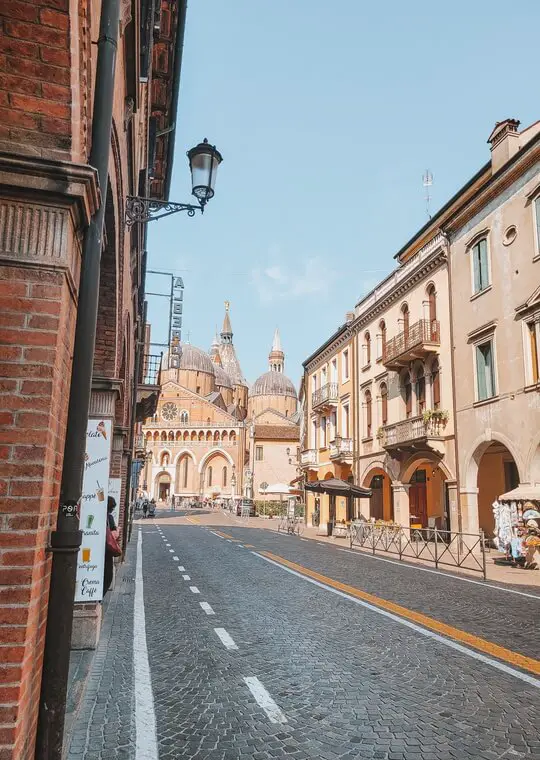
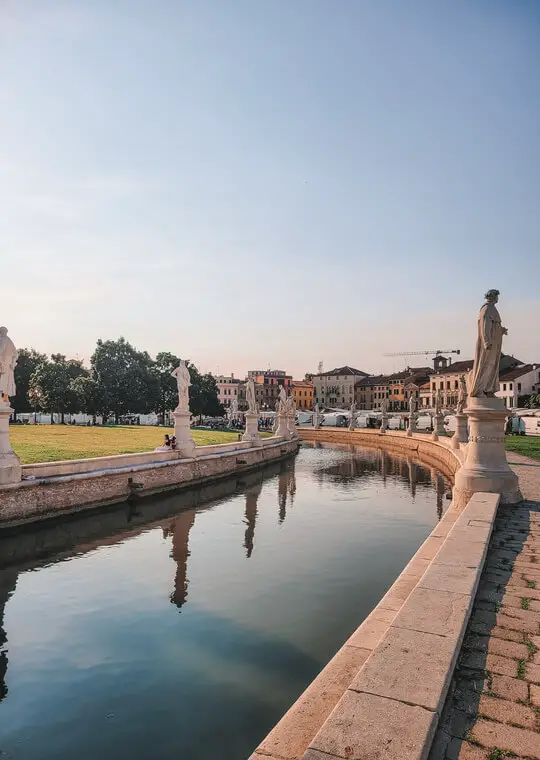
Trains in Italy work very well and it is easy to buy tickets online directly from the Trenitalia or Italo websites or from the various ticket machines available in the train stations. I recommend checking the timetables available in advance on the websites, as well as the ticket prices. There are many options available, but also very different prices.
💼 TRAVEL INSURANCE: Unexpected events happen anywhere in the world, so I always recommend getting travel insurance. I regularly use Heymondo, which offers some of the highest coverages on the market at very competitive prices. As well as covering medical expenses, Heymondo’s insurance also covers the loss or theft of luggage, electronic equipment and more. They also have a 24/7 customer service through their App. As A Ticket to Take Off reader, you get a 5% discount when purchasing Heymondo insurance. The purchase must be made using this link, and the price shown on the website already includes the discount.
Accommodation in Padova
I only slept one night in Padova, but I have an accommodation recommendation for you 😊 During my stay in the city, I opted for a family-run and very well-located accommodation. Located less than 5 minutes walk from the Basilica of Saint Anthony or Prato della Valle, it is impossible to find a better location than this.
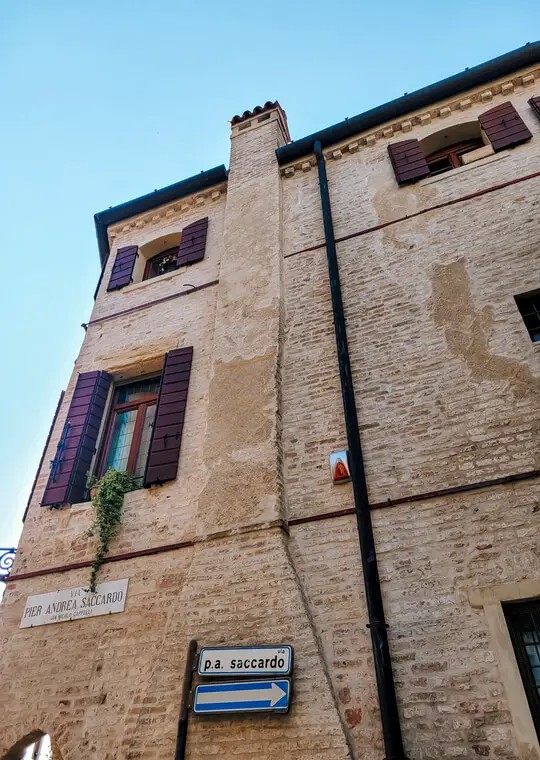
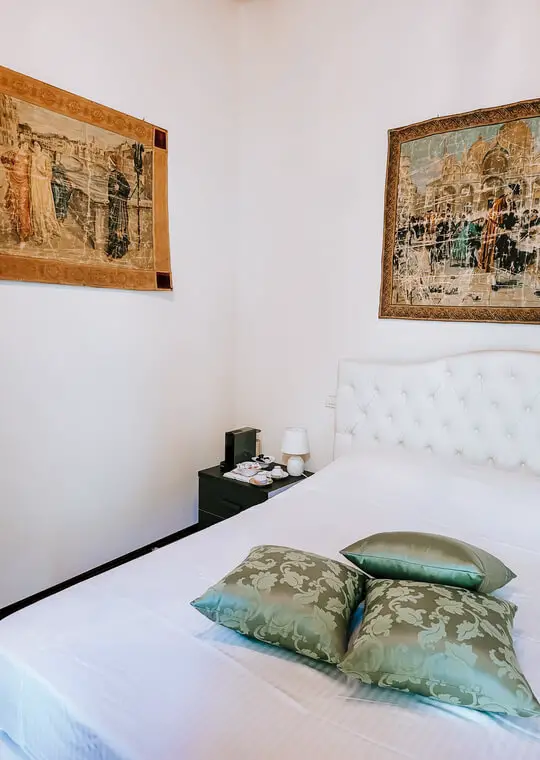
Casa Locatelli is a flat inserted in an 18th-century palace and it is equipped with everything you need for an excellent stay. In addition to the bedrooms and bathroom area, the flat also has a social area (living room) and a small kitchen.

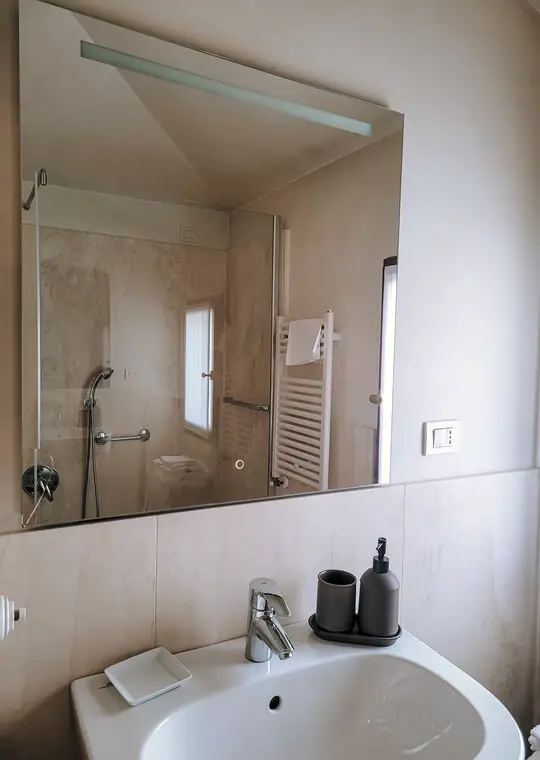
Activities & tours in Padova
What to visit in Padova?
You can easily visit the main points of interest in the city on foot, as they are not so far away from each other. Before starting the list of what you can visit in Padova, I leave you here a map with the main points of interest in the city.
» Prato della Valle
The Prato della Valle is the main square of Padova and is even the largest in Italy and one of the largest in Europe. The square has an elliptical shape, having a canal full of statues around the central green space.
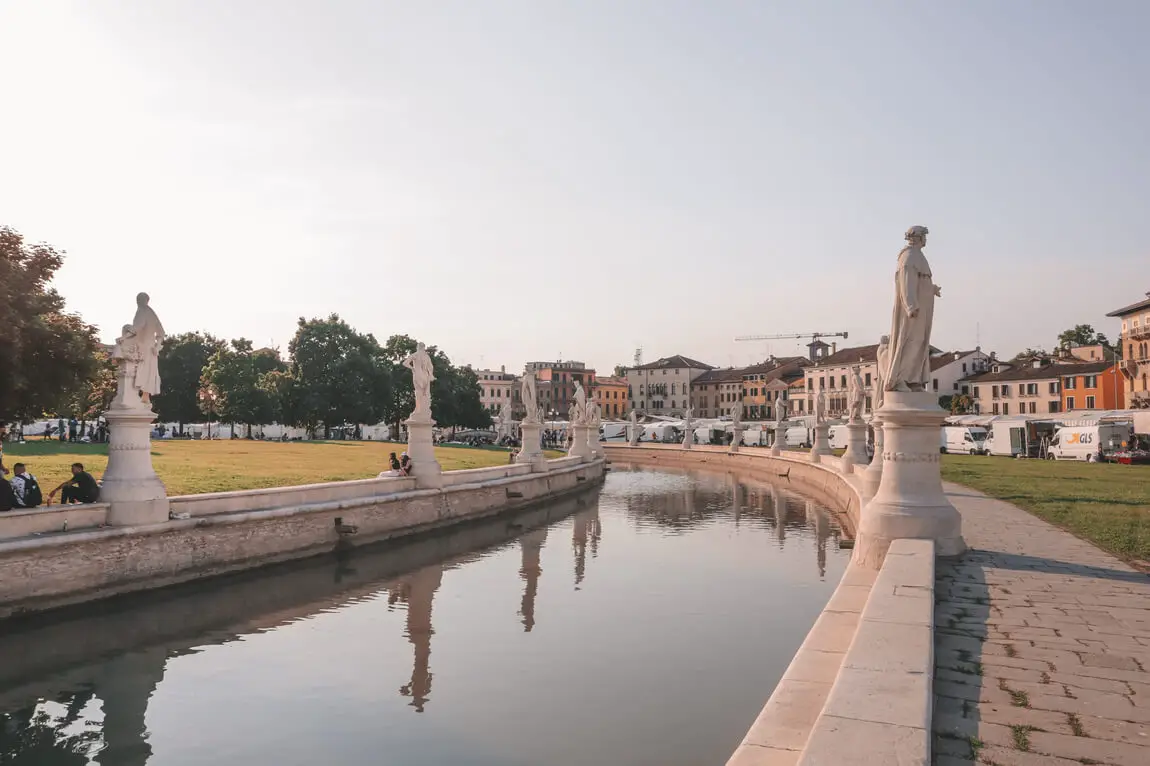
It is a very pleasant space in the city, where the locals take the opportunity to spend some of their free time. From the square, we can see some of the city’s places of interest, such as the Santa Justina Basilica, the Loggia Amulea and several palaces.
💡 EXTRA TIP: During some days of the year, there is a fair in this square, which ends up making some photo opportunities at this amazing square almost impossible.
» Basilica of St. Anthony
The Basilica of Saint Anthony is probably one of the main attractions that brings tourists to Padova and it’s something you definitely have to visit in Padova.
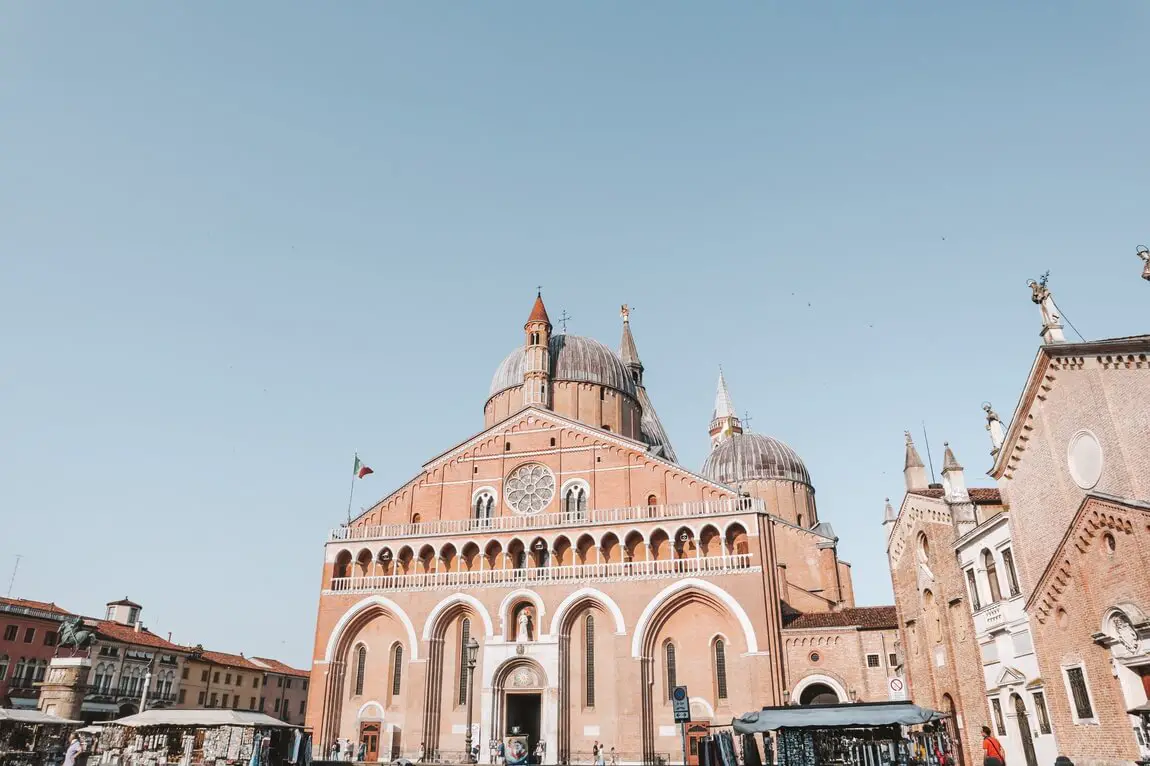
Although Saint Anthony is a Portuguese saint born in Lisbon, his body is buried in Padova and there is even some dispute regarding the saint.
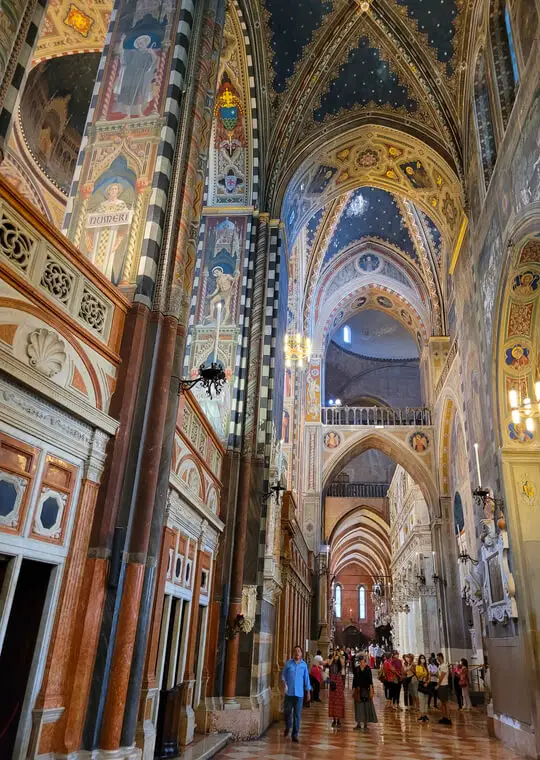
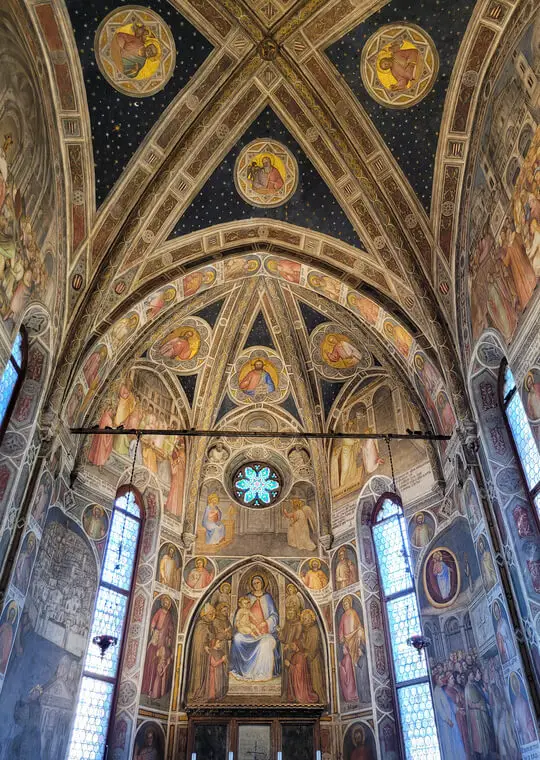
The Basilica is quite magnificent and worth admiring, both inside and out 😉 The visit is free, so don’t miss the opportunity to visit this superb basilica as well as its cloisters.
💡 EXTRA TIP: Right next to the Basilica of Saint Anthony, you can also find the Oratory of Saint Giorgio – a small gothic-style chapel, known for its frescoed interiors. However, I warn you that, unlike the Basilica, you have to pay to visit inside.
» Via Umberto I and Via Roma
Moving on to the next point of this Padova itinerary, I suggest a short walk through two important streets of the city: Via Umberto I and Via Roma. Apart from finding several well-known shops along the way, you can also find some more historic buildings such as the Palazzo Capodilista and the Santa Maria dei Servi church.
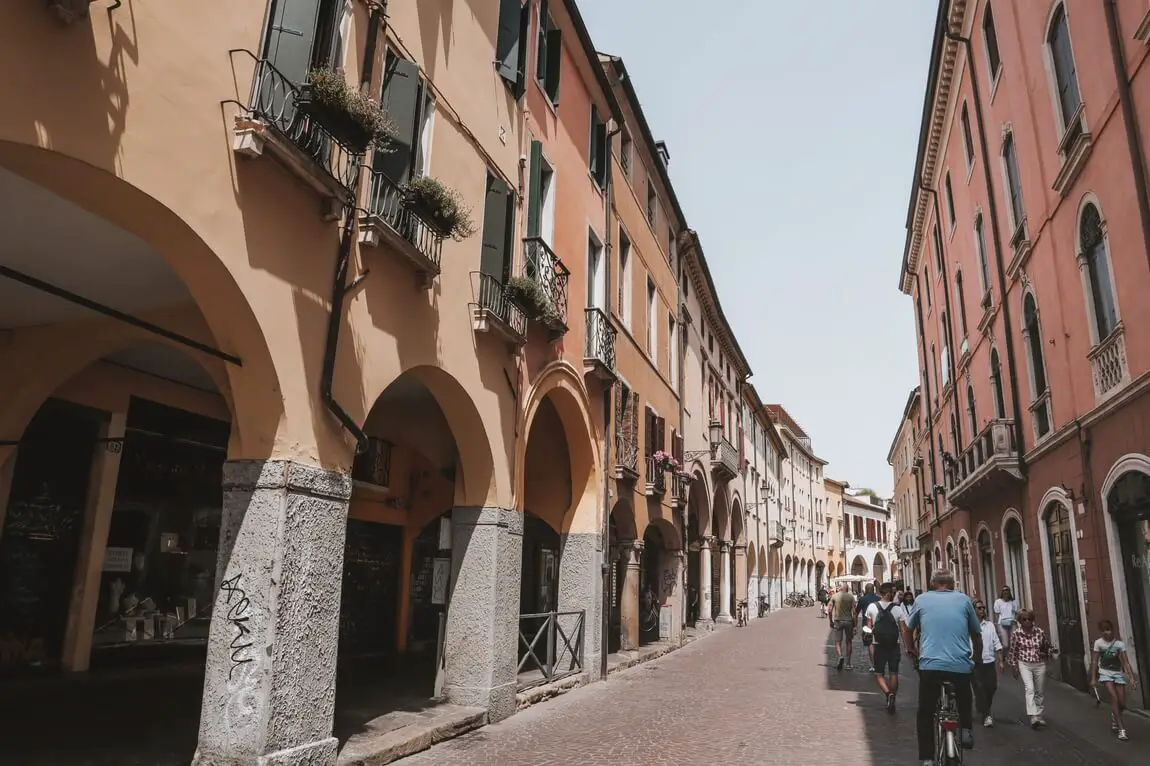
» Piazza delle Erbe and Piazza dei Frutti (squares)
These two squares appear together in the itinerary as they are side by side, only separated by the imposing Palazzo della Ragione – government building on the upper floor and indoor market on the ground floor. Both squares were the commercial centre of the city for many years and markets are still held there today.
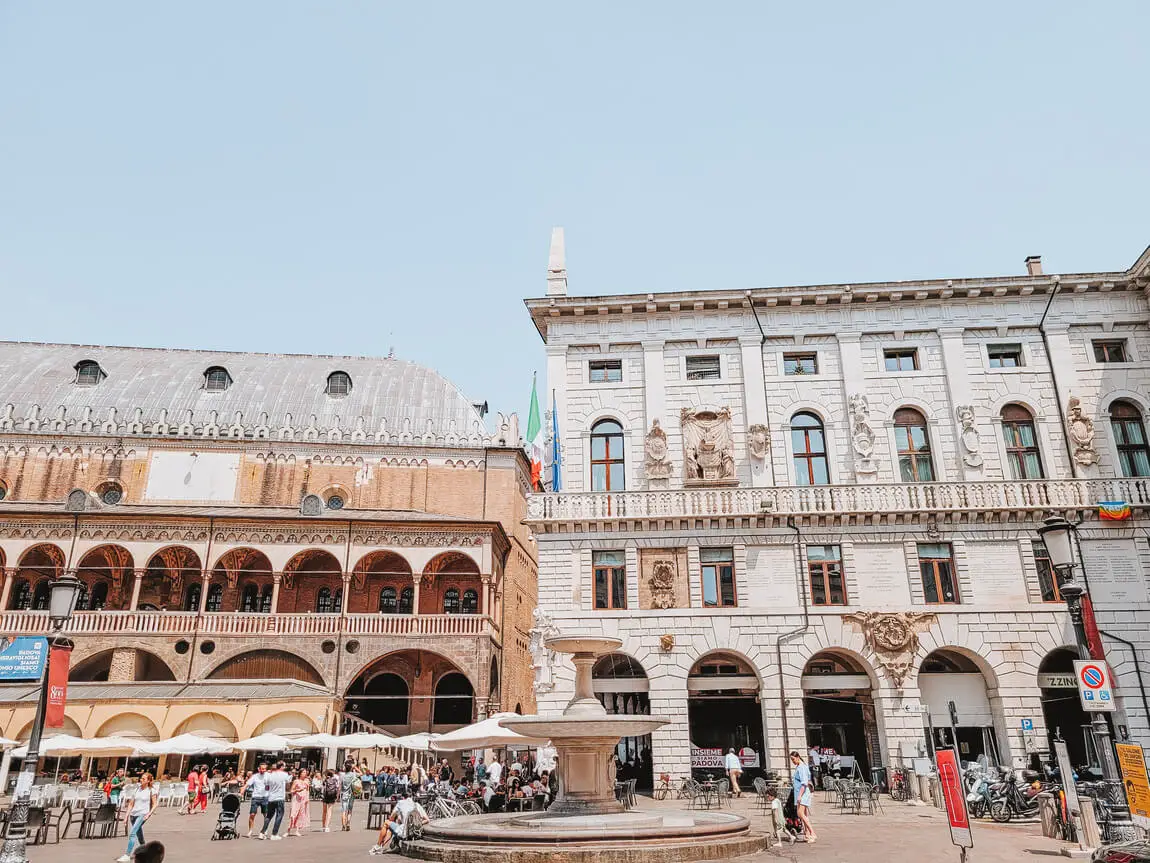
Apart from the Palazzo della Ragione, the Palazzo Comunale, the Torre degli Anziani and the Peronio Column also stand out.
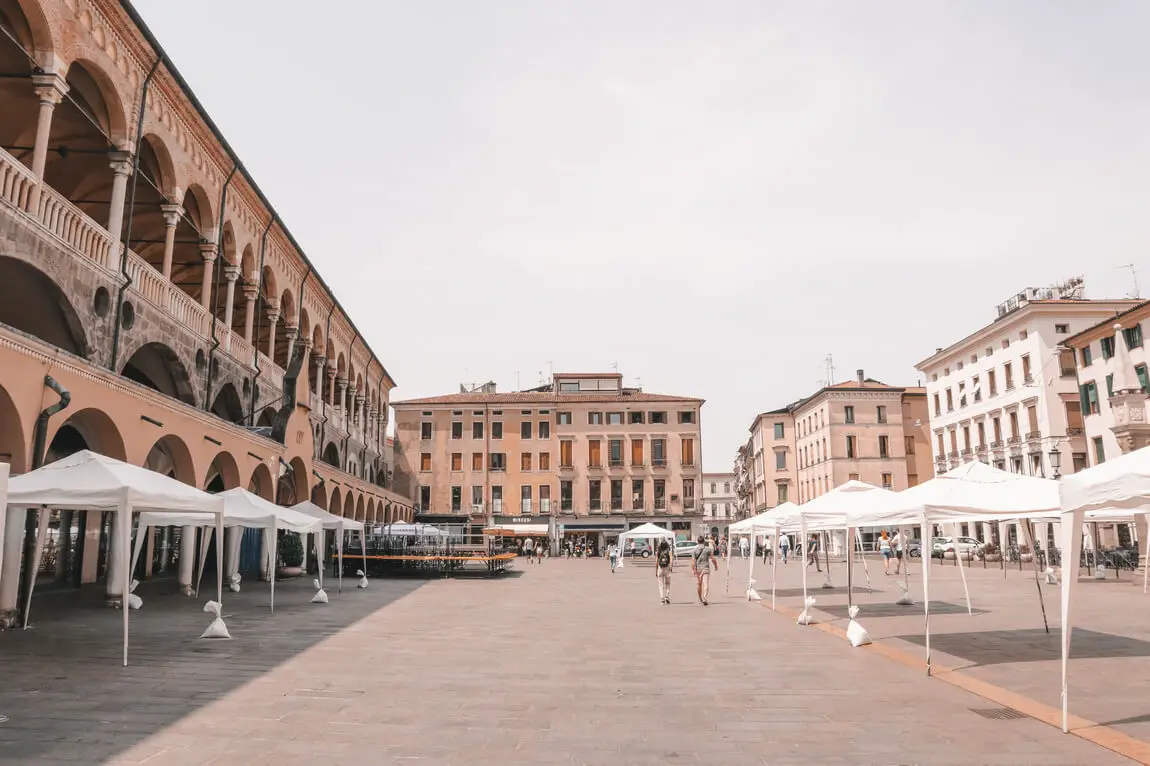
💡 EXTRA TIP: The beautiful interior of the Palazzo della Regione can be visited from Tuesday to Sunday and the ticket costs 7€.
» Piazza dei Signori (square)
Another must-see in Padova is Piazza dei Signori. While the previous two squares were more linked to trade, Piazza dei Signori was more related to government celebrations.
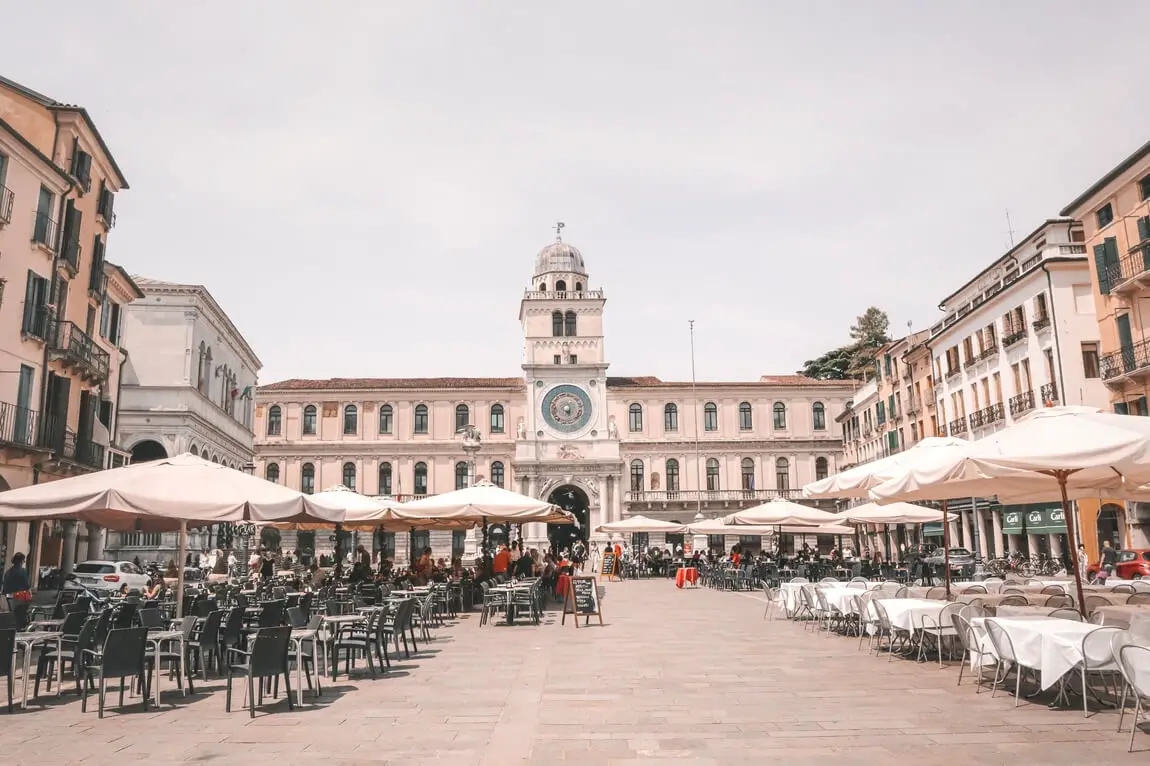
There are several emblematic buildings that can be found there, but I especially highlight these:
- San Clemente Church
- Clock Tower (tower with a 14th-century astronomical clock)
- Loggia del Consiglio (government building built in the 15th century)
- Martian Column
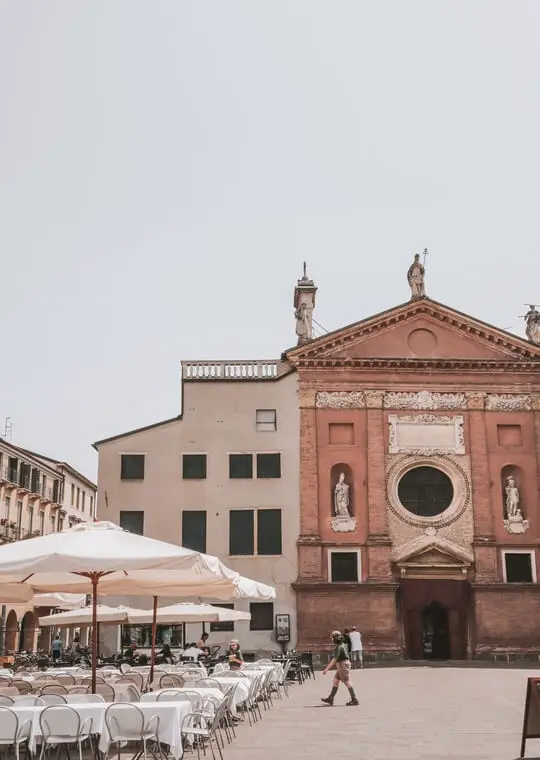
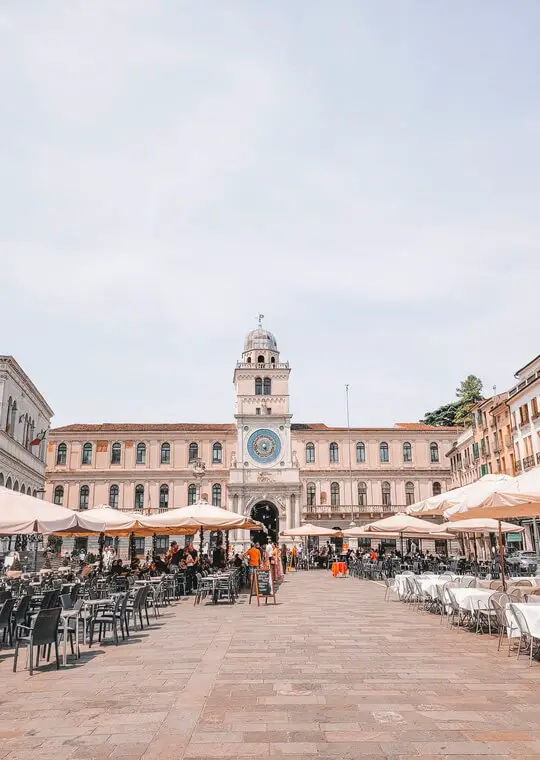
» Piazza Duomo (square)
We head for one more square – Piazza Duomo. As the name indicates, the ex-libris of this square is its cathedral (duomo in Italian). The Cathedral itself is definitely not the most imposing religious building in the city. However, it is worth visiting its interior as the visit is free of charge.
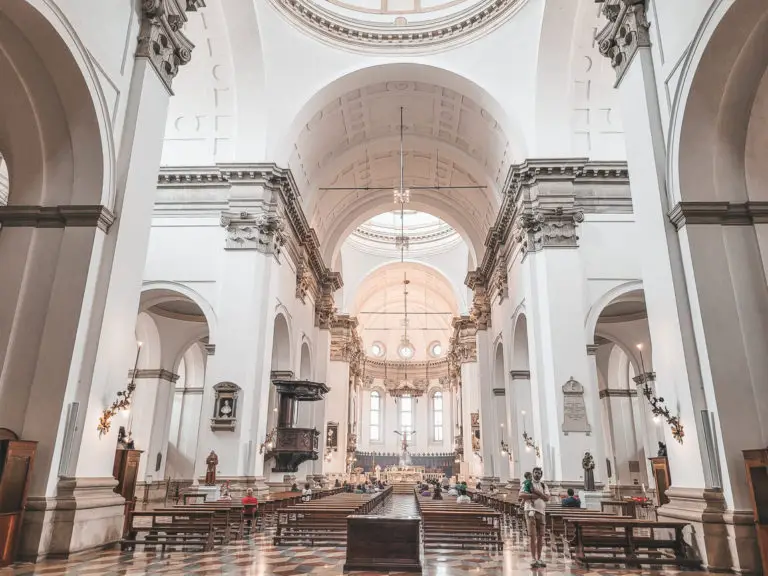
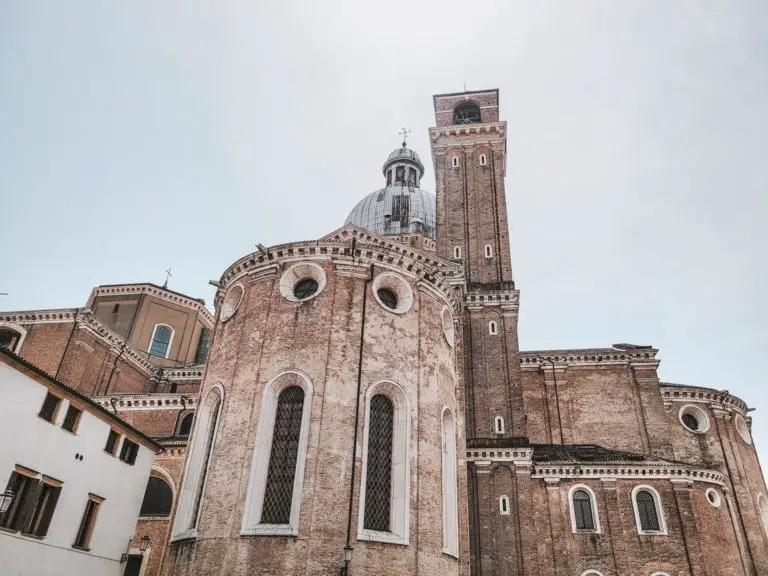
It is also possible to visit the Baptistery which contains frescoes inside and the ticket costs 5€.
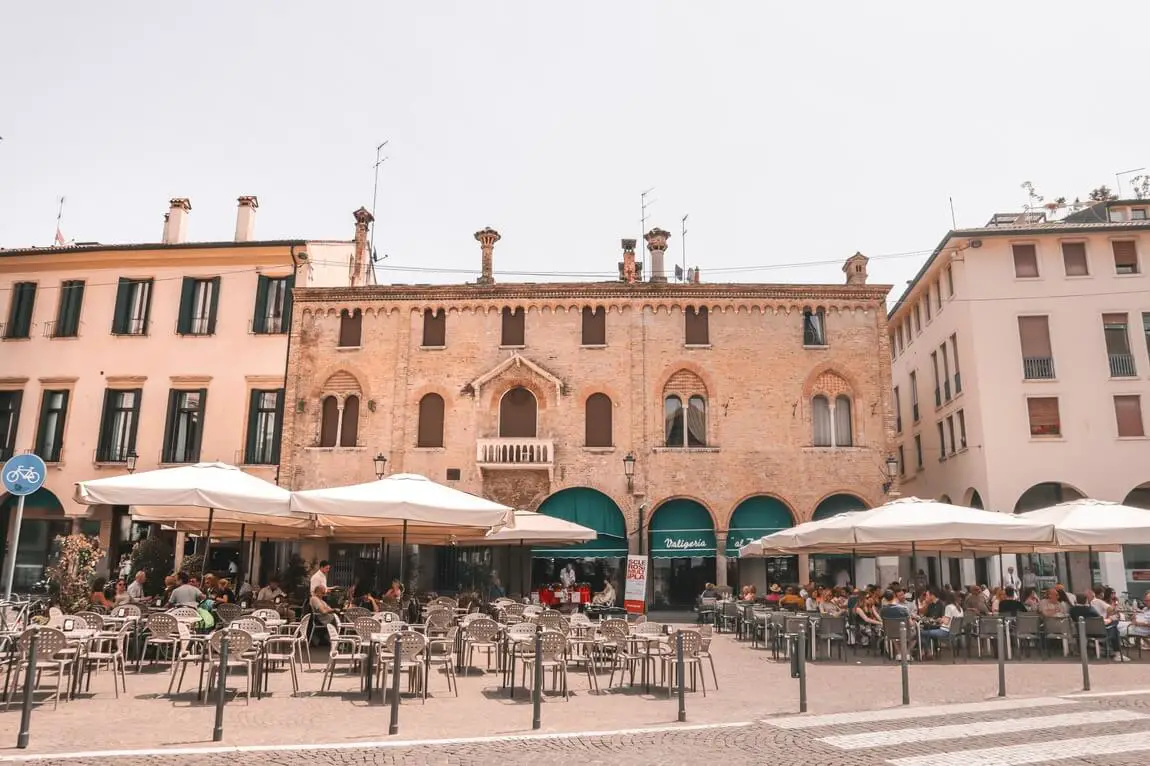
» Old Jewish Quarter
One of the places I most enjoyed visiting in Padova was the old Jewish Quarter. Created in 1603 and abolished in 1797, this was where the Jews lived.
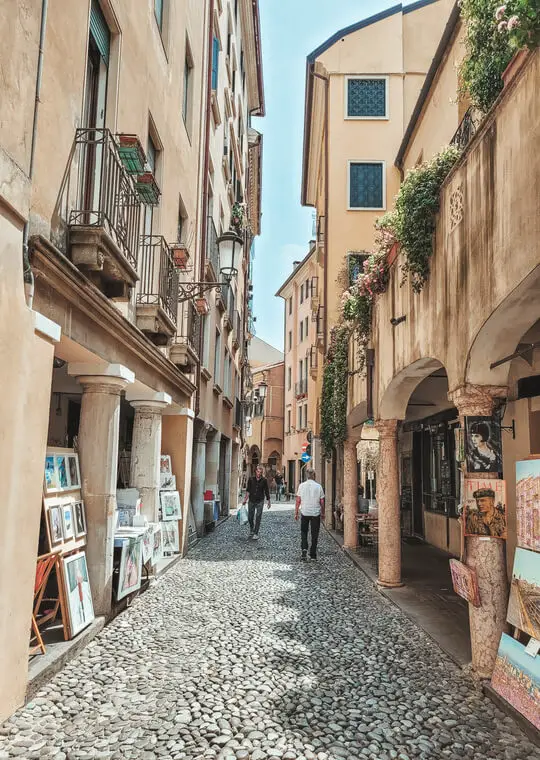
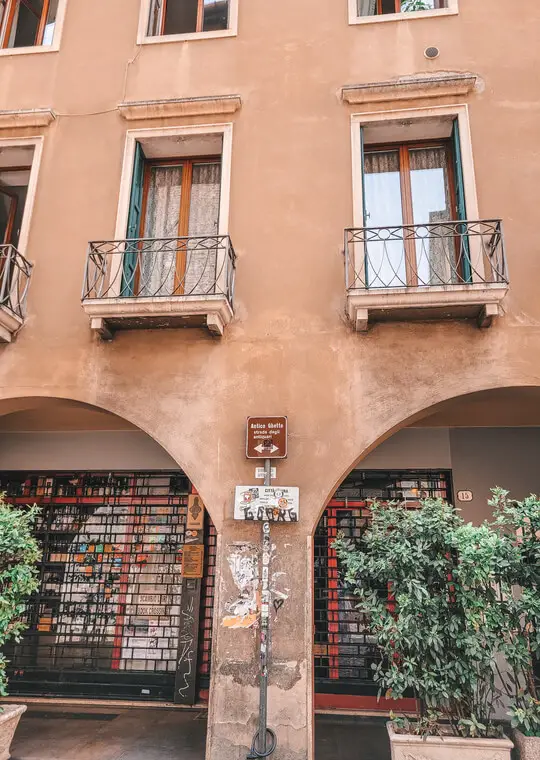
Nowadays, the narrow streets that make up this small neighbourhood are clearly different in style from the rest of the city, with lots of street markets and restaurants that make you want to go inside 😉
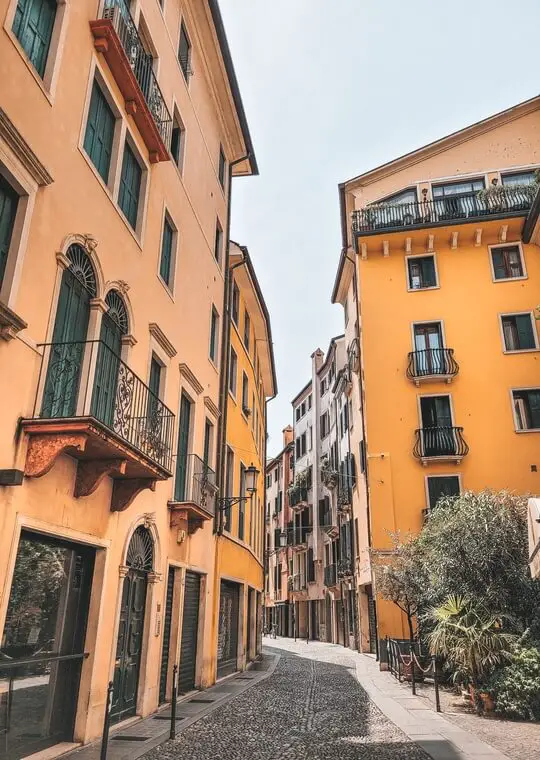
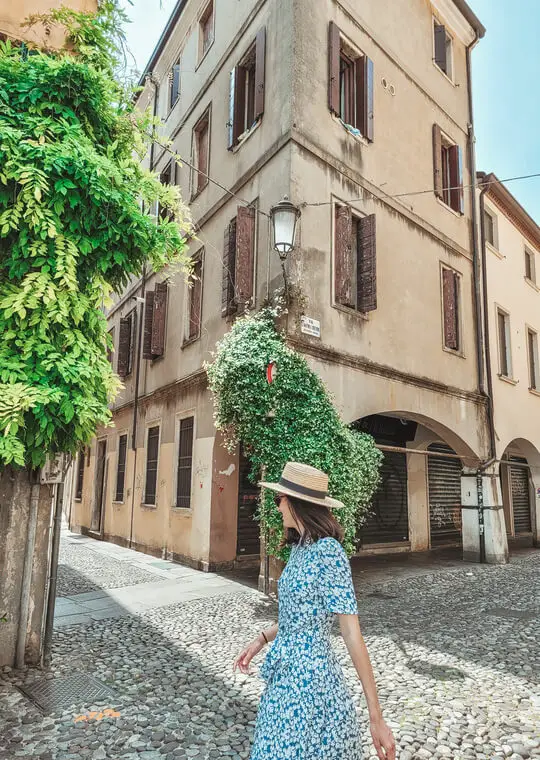
It is also possible to visit the Jewish Museum of Padova where you can learn more about the life of this community in Padova.
📝 USEFUL INFORMATION: The ticket to visit the Jewish Museum of Padova costs 10€ or 12€ if you also visit the Synagogue. I recommend checking opening times in advance here.
» Palazzo del Bo
Palazzo Bo is in fact the seat of the University of Padova, which is one of the oldest in the world (like Salamanca). With over 800 years of history, renowned personalities have studied here, and the building is currently used as the Faculty of Law and rectory of the University.
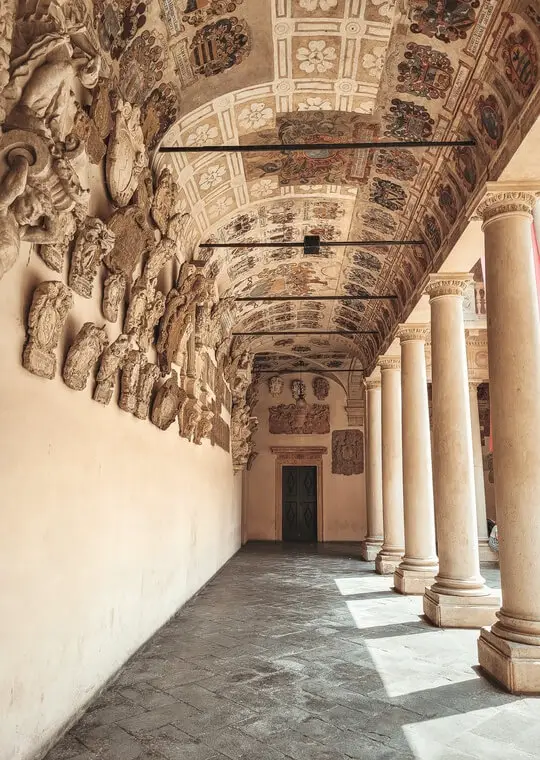
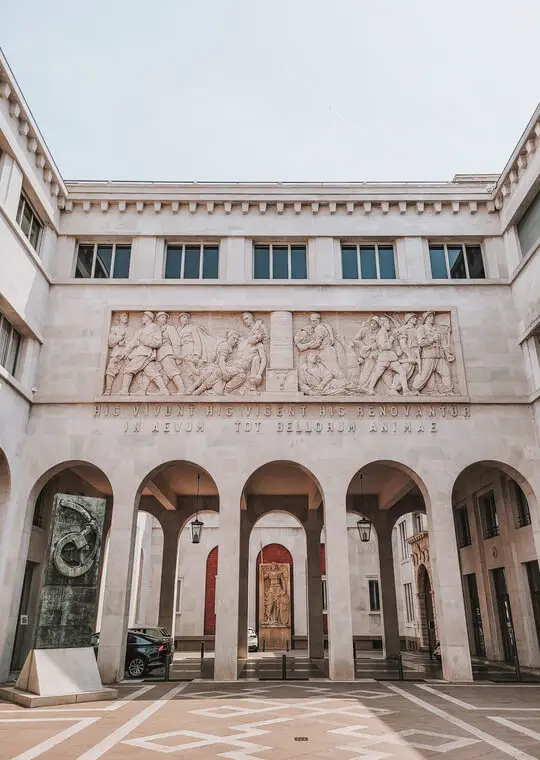
Although the courtyard can be visited freely, to visit the inside of the University (including the anatomical theatre, which is the oldest in the world) you have to pay and you have to book a guided tour.
📝 USEFUL INFORMATION: Guided tours are available every day of the week but at different prices. From Monday to Friday the tour costs 7€ and at the weekend 12€. Also, note that these two tours are not exactly the same so you should check which one you prefer in advance here.
» Eremitani Church
The next thing I recommend you visit in Padova is the Church of Eremitani, built in the 13th century. Although it looks simple and bare on the outside, inside you can find some frescoes, making it one of the most beautiful churches in Padova.
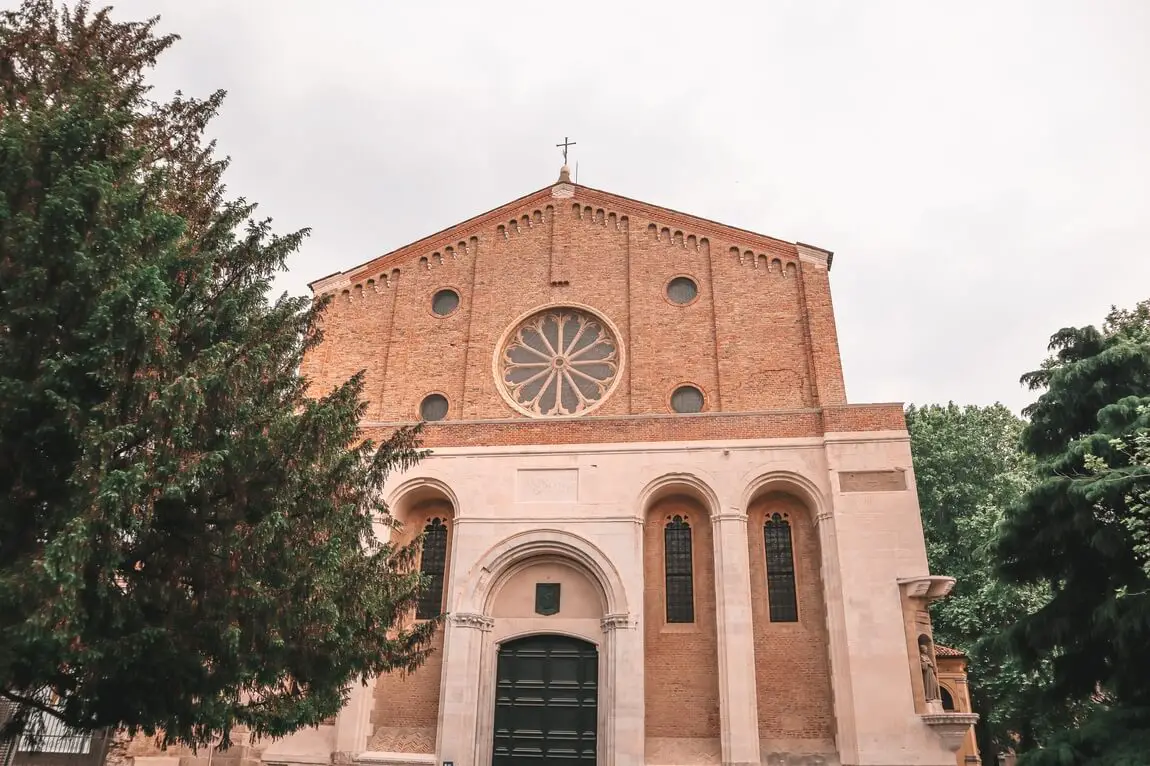
📝 USEFUL INFORMATION: Admission to the church is free and opening times are as follows: weekdays from 7.30 am to 12.30 pm and 3.30 pm to 7 pm; weekends from 9 am to 12.30 pm and 4 pm to 8 pm.
» Scrovegni Chapel
If I had to choose my favourite religious monument in Padova, the Scrovegni Chapel would probably win. Those who see the chapel from the outside don’t even imagine what’s inside, making it one of Padova’s best-kept secrets 😉
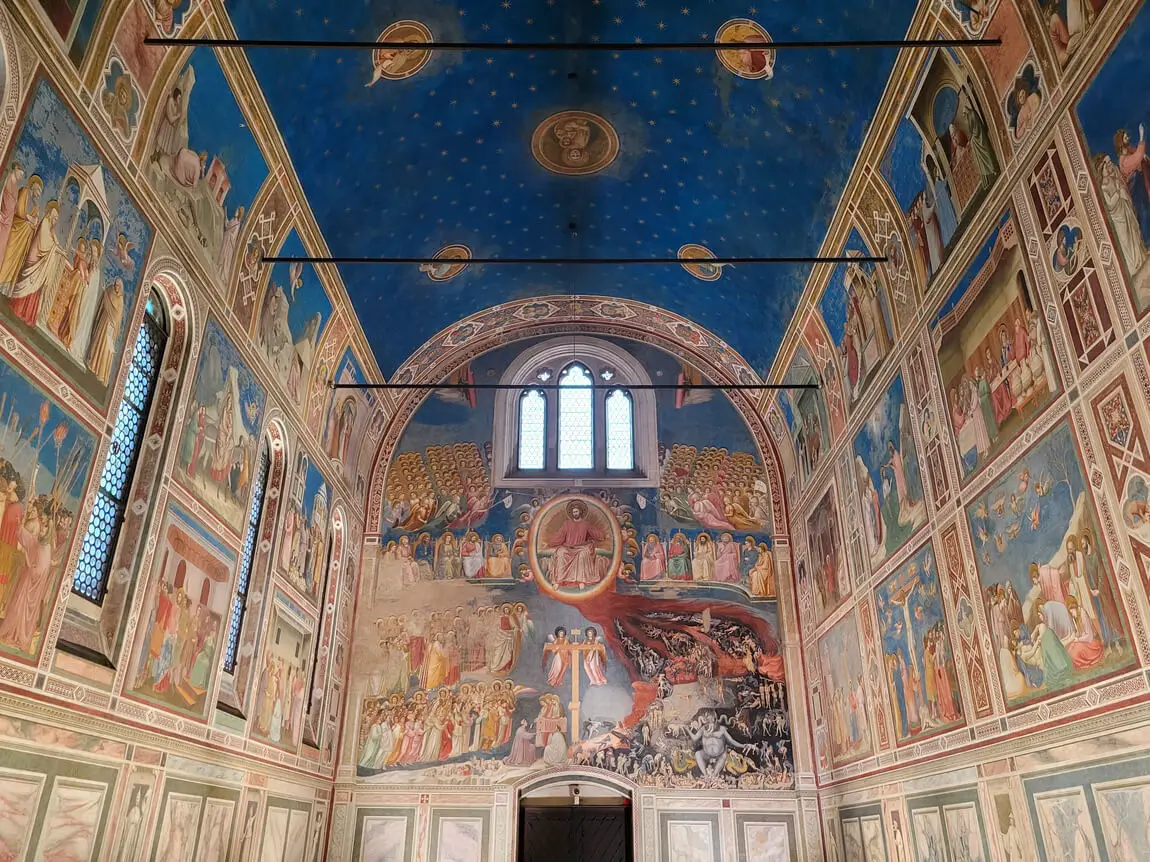
The vast majority of the chapel is covered with frescoes painted by the famous Giotto during the early 14th century. The artwork narrates the Story of Salvation and each of the murals is incredibly detailed.
📝 USEFUL INFORMATION: It is only possible to visit the Chapel by guided tour (advance booking required!!!), and tickets from Tuesday to Sunday also include access to the Musei Civici di Padova or Palazzo Zuckermann. This ticket costs 14€.
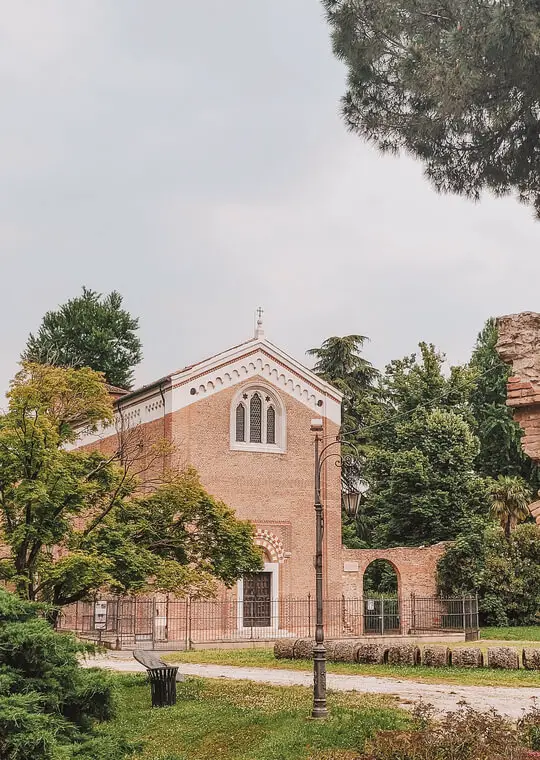
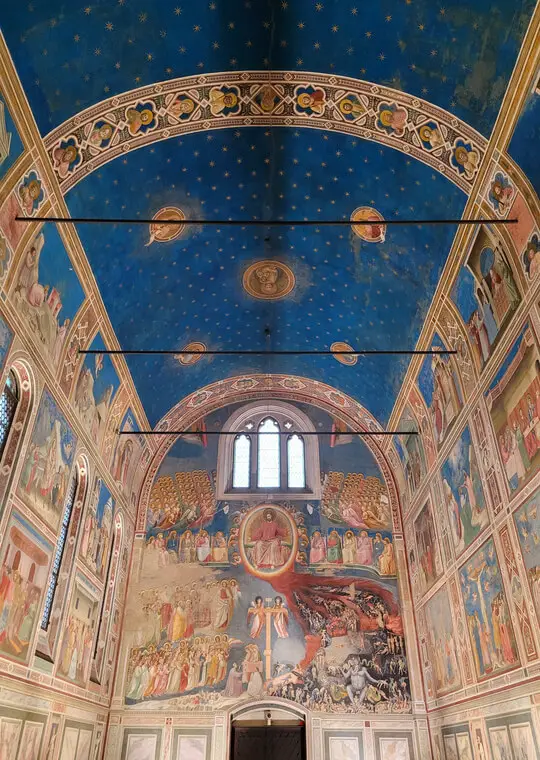
On Mondays, the ticket is cheaper and costs 10€ because Musei Civici di Padova is closed. You can find more information about timetables and buy tickets here.
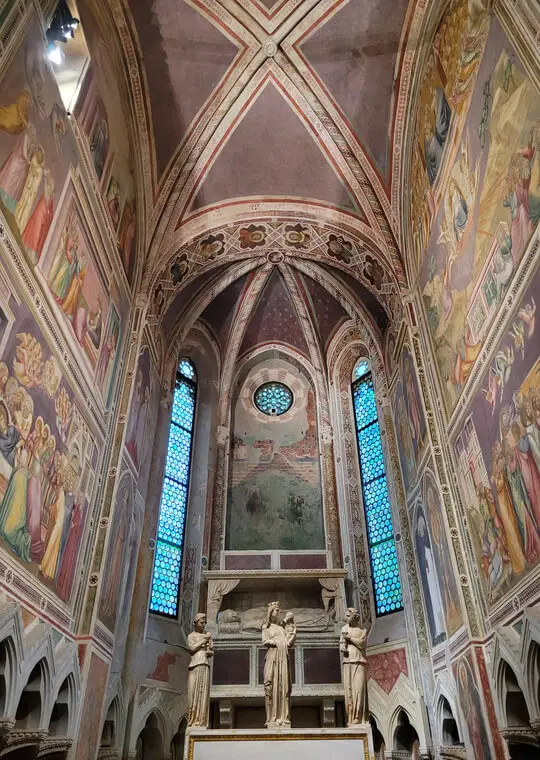
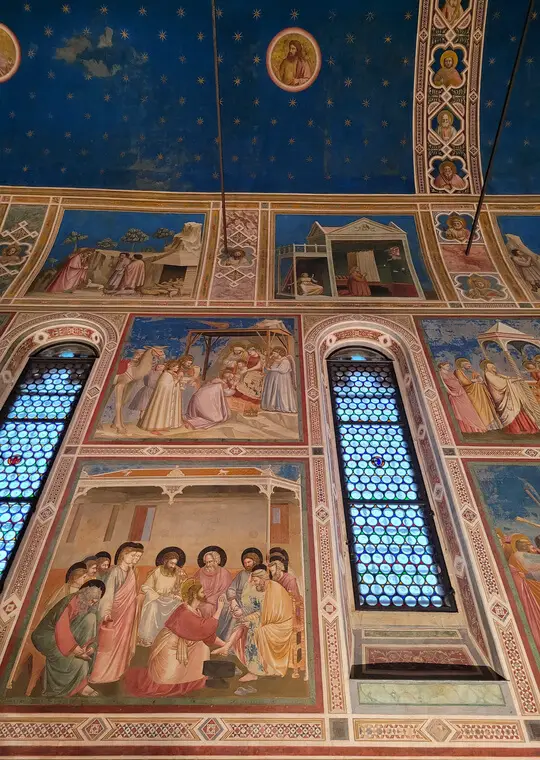
However, if you are like me and only want to visit the chapel, I suggest you try to buy tickets for the “Giotto under the stars” option. The ticket costs only 8€, however, this visit only happens from 7 pm to 10 pm and is not available all year round.
» Giardini dell’Arena
After contemplating a beautiful work of art, I suggest you take the opportunity to rest a bit in the Giardini dell’Arena gardens. The space is right next to the Scrovegni Chapel and even has a very nice terrace 😉
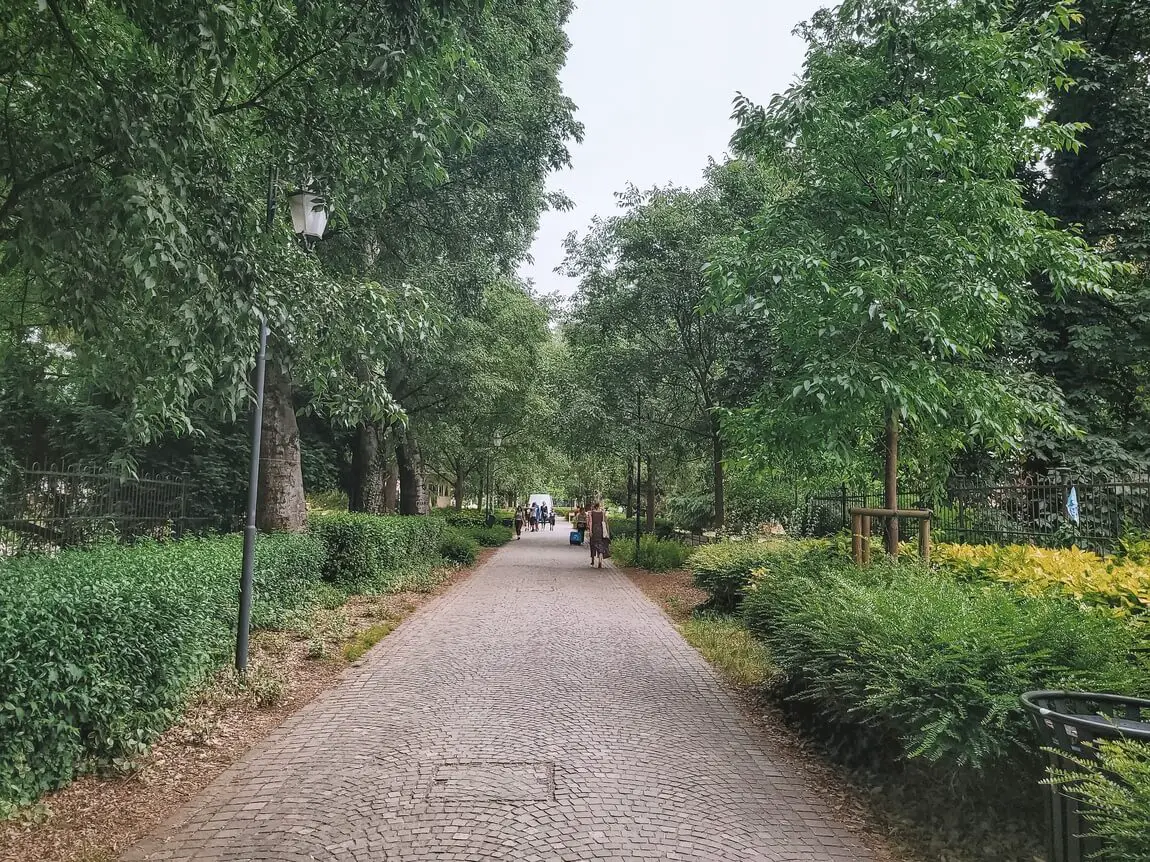
» Molino Bridge and Gate
Molino’s gate and bridge are some of the best-preserved parts of the first wall that surrounded Padova. It is estimated that the wall was built in the early 13th century and would have had almost 20 gates. Although this is not the most obvious must-see on an itinerary through Padova, it is a good stop to enjoy the river that passes under the Molino Bridge and also to observe the Ezzelino Tower.
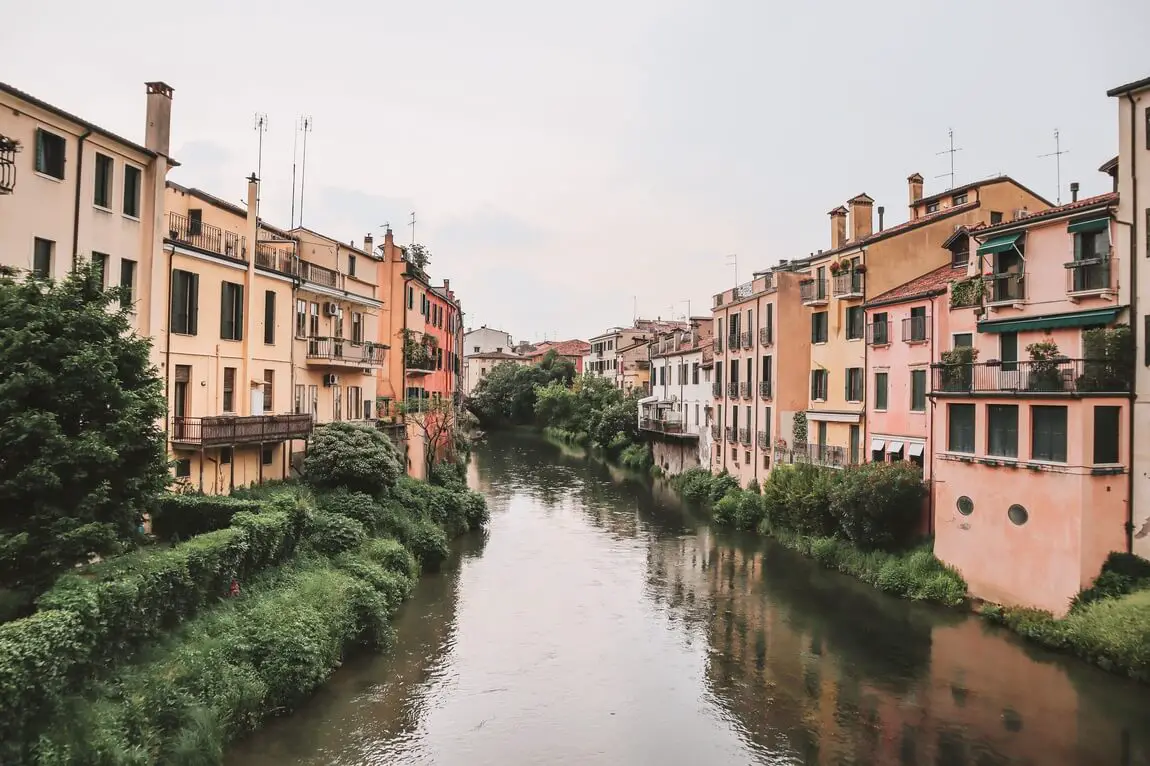
Restaurants in Padova
I’ve only had two meals in Padova and of those, I can only really recommend one – you can’t always get it right 😜 So, the restaurant I can recommend is Osteria Al Peronio (€€). It has a very central location, a terrace for the hottest days and, above all, a varied menu with Italian food. We tried the asparagus and mushroom risotto and it was very tasty.
Disclaimer: this post may contain some affiliate links, which means I get a small commission if you buy something through my links. This doesn’t represent any additional cost to you and you’ll be supporting my work here on the blog😊

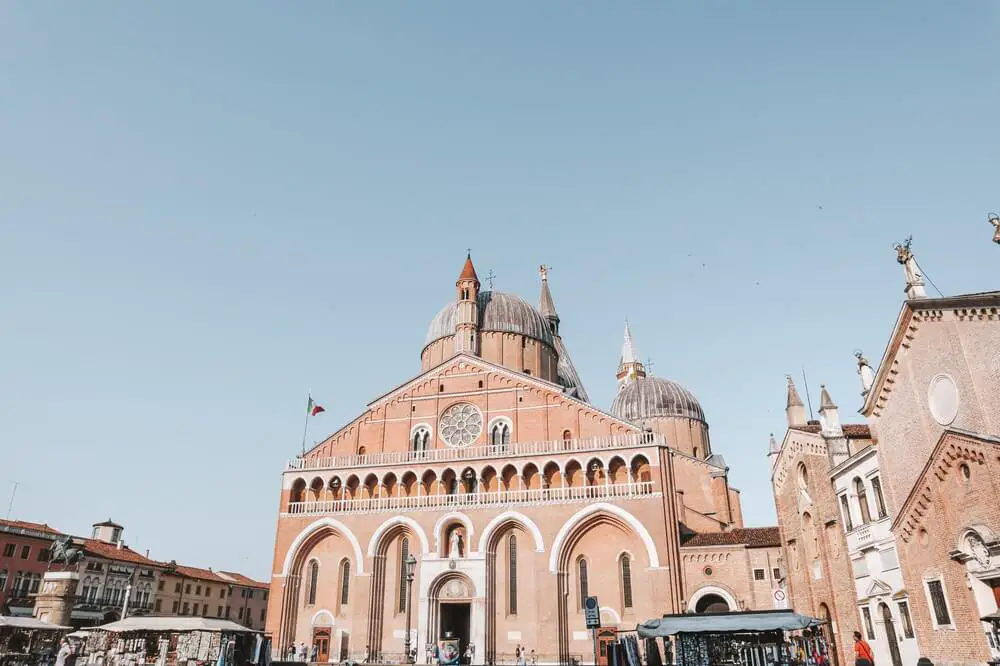





There is no map! Why?
There is a map under the section ‘What to visit in Padova?’. Maybe it’s taking some time to load 🙂 Can you try again?